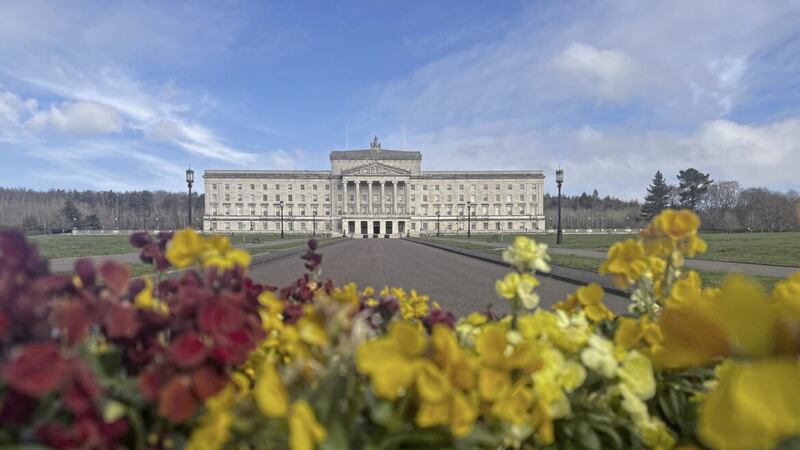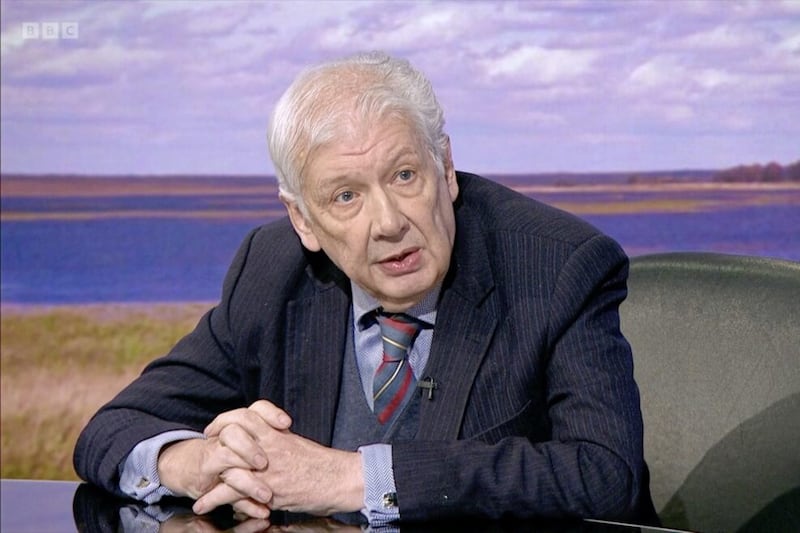In the prolonged absence of a devolved government the Secretary of State announced a budget which created a deficit across all government departments in Northern Ireland.
Against a backdrop of increased need, spiralling costs due in part to inflationary pressures and rising demand, the Department of Education budget has been slashed by £66.4 million (2.5 per cent) resulting in a funding gap of approximately £382m.
In response the permanent secretary, Dr Mark Browne, announced plans to reduce expenditure by £172m. Cuts included axing schemes which play a vital role in supporting disadvantaged children.
Initiatives affected included the 'holiday hunger' scheme, which provided £27 per fortnight to the approximately 96,300 children entitled to free school meals. Also affected are the 'Happy Healthy Minds' project, an intervention aimed to promote wellbeing and prevent poor mental health, the digital devices scheme and the Engage programme, designed to address the 'learning gap' due to Covid-19.
Alongside this the funding for the capital build programme designed to update and replace school buildings was also significantly reduced.
In a surprise move earlier this month the department announced that it would not be proceeding with proposed cuts to youth services and a range of early years programmes. In addition, some of the cuts proposed for the Extended Schools Scheme would be dropped.
This news came as a huge relief to parents and campaigners who had expressed serious concerns about the harm these cuts would cause to vulnerable children.
The reprieve does though raise significant questions about how these decisions made, on what basis and using what evidence, what metrics? What process was used to decide what would be protected and what would be prioritised? What criterion did civil servants use to arrive at this position?
The decision to reverse the proposed cuts in education highlights the current governance gap as we continue to languish in a limbo land. We are living with some form of indirect, direct rule.
In the absence of a local administration, NI civil servants have been handed decision-making powers. However, the nature and extent of these powers is complex, confusing and contradictory.
Chris Heaton-Harris announced a punishing budget and then washed his hands of any of the fall-out for people living here. He has made it abundantly clear that he is unwilling to engage in discussions about budgetary choices.
Guidance from the secretary of state on decision-making stresses that permanent secretaries must remain within their allocated budgets but must also not make decisions which could be construed as a change in policy direction. How can this circle be squared? It is well-nigh impossible.
The funding pressures means that it is not feasible for permanent secretaries to stay within their budgets without making significant decisions. The chaos and confusion around financial challenges in the Department of Education highlights the invidious position in which senior civil servants have been placed.

In their statement the Department of Education claims that the decision to reverse proposed cuts was made "having carefully considered all of the principles in the secretary of state's decision-making guidance". It goes on to emphasise the importance of early intervention to prevent future costs and the need to ensure provision for the most disadvantaged.
The most telling line in the statement is: "In considering the cumulative impact of the proposed cuts, which represent a major change to longstanding ministerial programmes and policies, I am of the view that such a decision should be taken by a minister and not the permanent secretary."
In other words, cuts of this magnitude which run counter to the agreed policy direction prior to the collapse of Stormont, should be made by elected politicians.
This change of heart means that the Department's budget will be overspent by over £200m but they are pressing on regardless. How was this position arrived at? When and why was it decided to scrap some cuts but keep others? There is zero transparency and accountability in this process. Where is the scrutiny?
There is no doubt that the proposed cuts to youth services and Sure Start would indeed have run contrary to the focus on early intervention, prevention and addressing disadvantage. But couldn't the same be said for allowing the axe to fall on schemes such as Healthy Happy Minds and the holiday hunger schemes?
Financial reductions have already disproportionately affected the poorest children. Fifty per cent of mental health problems are established by the age of 14 and the importance of promoting emotional health and wellbeing at the earliest stage is supported by a wealth of evidence.
The aim of this programme was to provide counselling and a broad range of therapeutic inventions to identify those at risk of poor mental health at an early stage. Unmet mental health needs can cause avoidable distress and disrupt a child's development. The Youth Wellbeing Prevalence Survey 2020 reported 25 per cent higher rates of anxiety and depression in the child and youth population in Northern Ireland in comparison to other regions of the UK.
The announcement by the Department of Education to hit the pause button on some of the planned cuts which would have exacerbated educational disadvantaged is good news and should be welcomed.
However, the fact that the decision-making process around vital public services is shrouded in mystery is deeply unsatisfactory. This move also, of course, begs the question that if one government department is prepared to flex its muscles in the face of unprecedented budgetary pressures, will others follow suit? Will the proposed deeply damaging cuts to, for example, nurse training be reversed by the Department of Health? Or are permanent secretaries making it up as they go along?







